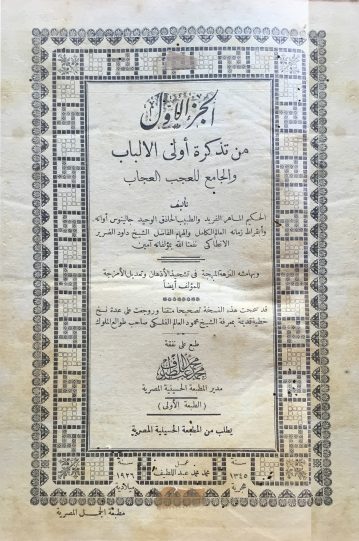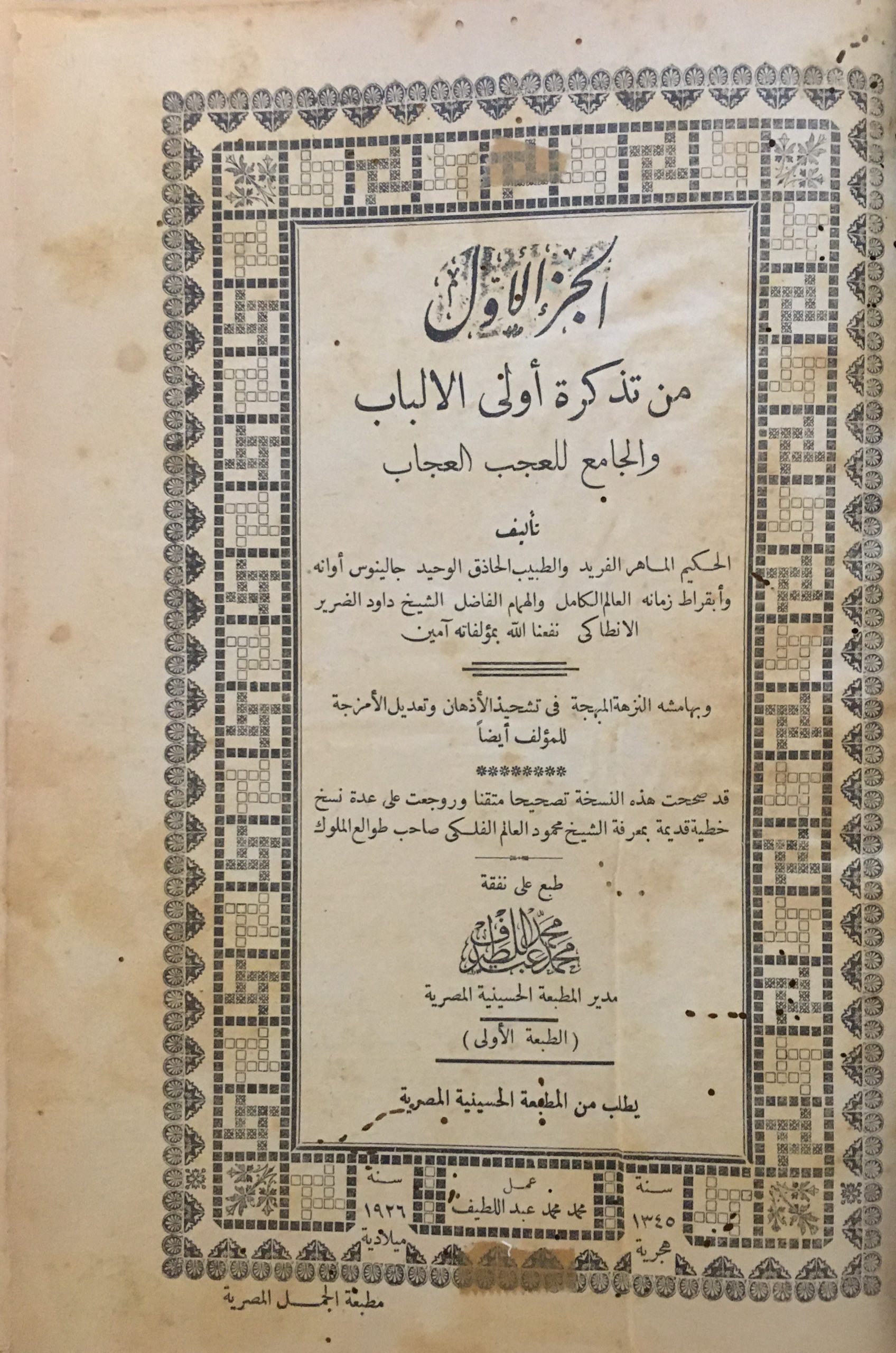Tizkirat Awla al-Albab wa al-Jami’ lill ‘Ajab al-Ujab + al-Nuzha al-Mubhija fi Tashiz al-Azhan wa Ta’dil al-Amzija. TWO VOLUMES IN ONE. تذكرة اولى الالباب والجامع للعجب العجاب وبهامشه النزهة المبهجة في تشحيذ الذهان وتعديل الامزجة
Al-Antaki, Dawud.
Synopsis
Dawud al-Antaki (d. 1599) was born in Antioch, Syria. He was a blind Syrian physician and pharmacist, who excelled in studying medicine. He was particularly gifted in logic, philosophy and astronomy. He travelled to Aleppo, Damascus, Cairo and Mecca.
After the height of medicine in the medieval Islamic world and after the work of Ibn Al- Nafis (d. 1288), Dawud al-Antaki was one of three great names in the field of Arabic medicine in the fourteenth and fifteenth centuries CE, alongside the Iraqi scholar Yusuf Ibn Ismail al-Kutbi and the Turkish doctor Khadir Ibn Ali Hajji Basa. The seminal western historian on Arabic medicine Lucien Leclerc (Historie de médecine arabe, Paris 1876) considered al-Antaki the last representative of Arabic medicine.
At the end of his life, al-Antaki made a pilgrimage to Mecca where he died. He left behind a large volume of works, including The Research of Diseases, The Poem of the Doctor, A Treatise on Baths and The Pleasure of Sight.
The most interesting and best known of his works is The Memento, which contains three books, of which the last one is the most important. It is a pharmacopoeia and contains more than 1712 names of drugs (the Canon contained less than 800). This is the most complete book after that of lbn Al Bitar. In his work, al-Antaki described, for the first time, syphilis and its treatment with mercury.
This work, the Tadhkira, is known to be the prime Arabic language reference work on medicine, natural history and the occult sciences.








